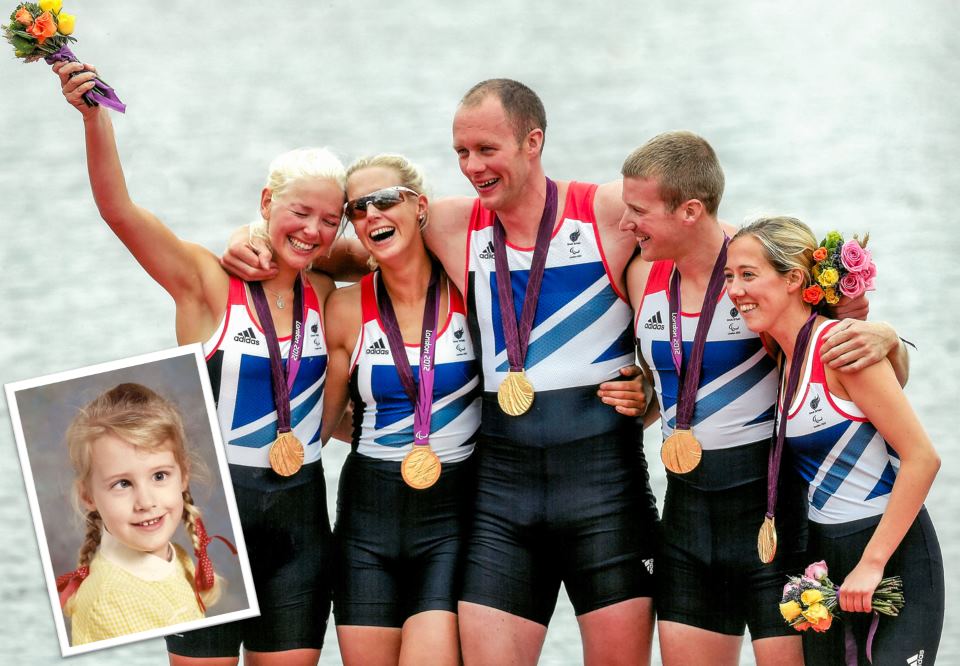PA Life sat down with the British Paralympic rowing Champion, Naomi Riches MBE. Naomi, is not only known for her rowing, but she is an inspirational figure in the world of para and adaptive sports. She was born with a visual impairment, but re-defined expectations by winning six World Gold medals, a Bronze at the 2008 Beijing Paralympics Games and a Gold at the London 2012 Games. Naomi also set and still holds a Guinness World Record for rowing the length of the Navigable River Thames.
Naomi’s resilience, dedication, and passion for sport have made her a role model for aspiring athletes. Beyond rowing, Naomi uses her platform to be an inspirational speaker to motivate and empower others to overcome challenges, embracing their differences.
What strategies do you use to stay motivated when working toward long-term goals, especially when progress feels slow?
In 2005, London won the bid to host the 2012 Summer Games, and I knew I had to secure one of those seats in that boat. The challenge, however, was that the Games were seven years away – and a great deal can happen in seven years. Who, reading this now, can truly say where they’ll be in seven years’ time?
In those seven years there were lots of hurdles to overcome, including six World Championships to get to. Then there were the Paralympic Games in Beijing to get to, trials and tests to get through, as well as crew changes, support staff changes and personal life situation changes. Had I fixated too much on the larger goal, I likely would have overwhelmed myself and lost sight of what needed to be done to get there. Instead, I focused on the smaller steps – the processes and details that had to be ticked off along the way. By doing so, the closer I got to London 2012, the clearer that finish line became.
I would be lying if I said I was motivated every step of the way. I experienced days, weeks, even months when I thought ‘this is just too tough.’ But two things kept me going; the idea of standing on the medal podium with a gold medal around my neck was a huge motivator of course, but the stronger one for me was proving to myself that I was capable. Having gone through school feeling as though I had no skills and very little to offer, that feeling has often become the fire in my belly driving me to reach my targets – not just to meet them, but to exceed them, often surprising even myself.
Can you share an example of how you handled conflict or misalignment within your rowing team?
I have never been particularly comfortable with conflict, so this is a hard question to answer. We did spend a lot of time working on our team; keeping that transparency and accountability organically built the trust we needed. We made a commitment 100 days before the games to live by the mantra ‘excellence is habit’, and it was this that kept things running smoothly. If someone did something that went against that mantra, it would be addressed but then we would move on. We wouldn’t dwell on those things as that underlying tension or misalignment can be what tears the team apart in moments of stress. Competing in the final of the Paralympic Games is certainly not a stress free situation!
How did you balance intensive training, personal life, and other commitments during your career?
When you are an elite athlete, your life is somewhat mapped out for you often 12 months or more in advance. Fortunately we received lottery funding which meant that we didn’t have to work as well as train. The hardest part – and I know many athletes will tell you the same – was saying no to invitations, weddings, birthdays, and days out with friends. But I didn’t see that as sacrifice as many others have phrased it before, I saw that as a choice. I had chosen to follow this path. Most of the time, when people know what you were doing they understand. You also need other activities to fill your time as sport at that level can be utterly all-consuming. For me, it was public speaking and charity work – both gave me a sense of fulfilment, knowing I was helping and supporting others. That balance was essential for me.
Can you share a time-management tip you learned as an athlete that PAs and other professionals can apply to their busy schedules?
Time management for me was not a huge issue as I was not studying or employed whilst I was training. It is a skill I’ve had to learn whilst running my own business. I find timeboxing and being utterly disciplined with it works best for me – a discipline I’ve carried over from my rowing career. I often reflect on those days when I had to say no to seeing friends or family, because in that moment, the most important task was completing 18 kilometres on a rowing machine. Timeboxing helps you prioritise effectively, but it also allows you to manage other people’s expectations. For example, if I can’t complete something this morning, I’ll let them know I’ve set aside time in my diary to finish it by lunchtime tomorrow. Often, people assume they are your top priority, but they aren’t always aware of the steps that need to happen first to ensure you can deliver on their task to the best of your ability.
As someone who has achieved so much, how do you define success today, and has that definition changed over time?
That is a tough question. I sometimes forget what I’ve achieved, it feels normal to me.
It’s only when I take my medal into a school, work on developing team resilience within a business, or stand on stage delivering a keynote that I truly appreciate the magnitude of my achievements. I know nothing will ever surpass the experience of London 2012 or setting my Guinness World Record, nor would I expect anything to come close. That said, I’ve become quite good at celebrating successes along the way.
In truth, I’m far better at recognising and celebrating the successes of others than my own – but isn’t that the case for so many of us?
The definition of success for me now is achieving something that you know has stretched you. Knowing you have had to work that resilience muscle in order to achieve it. Success is all about stretch, when you see people succeed they’ve stretched beyond what is normal for them; they’ve stretched a little beyond their comfort zone to achieve that goal however large or small.
For more interviews on exceptional individuals like Naomi, check out our latest news page at PA Life for regular updates.















